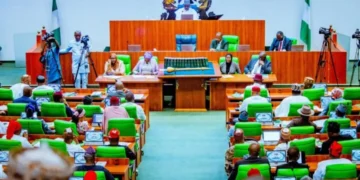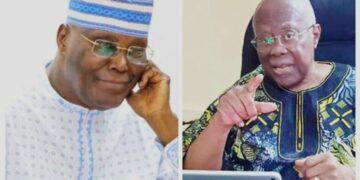Let me start by stating that I consider it an honour to have been invited to review this little book by Professor Ladipo Adamolekun.
Nigeria and I: Getting Politics Right to Make Nigeria Work is being presented as the highlight of the 80th birthday of the author. As one of the most respected scholars of international repute that Nigeria has produced in the last six decades, the author deserves to be celebrated on attaining four score years on earth. But Professor Adamolekun is much more than just an exceptional scholar. He is many other things. He is a social thinker, excellent administrator, outstanding linguist, first rate public management specialist, patriot and above all, a marvelous human being – or to combine the three languages in which he is proficient: C’est un vrai gentleman; an omoluabi!
At 80, this new book is proof that the author did not retire to Iju, his beloved hometown, to rest. He retired there to reflect. The main title of the book is a reflection of not just his intellectual exertions in the last almost six decades; it is also his deep deliberations on the challenges that Nigeria faces. This would not constitute a surprise to anyone who is familiar with the author’s life or has followed his intellectual trajectory and public career. Evident in his personal, public, professional and scholarly trajectories is a profound interest in, and unease about, the failure of his motherland to match its enormous potentials with its realities. As reflected in his autobiography, I Remember (2016), as one who is fortunate enough to have been born in an era where the circumstances of one’s birth did not limit one’s potentials in attaining the greatest heights in life, the author shows in this book that he is untiring in his concern with creating or perhaps re-creating a polity in which every citizen will have the opportunities to fulfil their potentials. That is, a society in which what Obafemi Awolowo described as “to each according to his[or her] ability” will be more of a reality than a mantra.
Therefore, when in his review of fifty years of the federal experience in Nigeria in a 2005 Publius article, Professor Adamolekun noted that “the salient features of Nigerian federalism” during its “golden age,” that is, between 1954 and 1965, were “choice, incentive, and competition,” he was not merely describing the organizing logic of the structural conditions of the Nigerian union in that era, he was also pointing to the overall conditions of socio-economic life that ensured that Nigeria not only produced the likes of him but also gave them the opportunities to exercise their meritorious lives according to their talents. The Adamolekun generation was a generation in which the overall social conditions were such that people could make excellent personal choices. They also had all the incentives needed to excel anywhere in the world. And importantly, competition was encouraged not only structurally among the regions, but also among the citizens themselves in order to ensure that the best were in charge of the critical instruments of the social order – including the universities and public service, two of the key areas of our national life that the author has studied closely for almost six decades.













































































